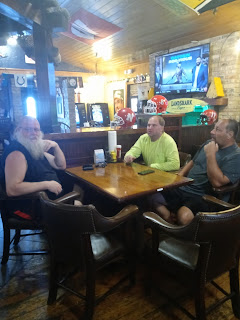What does a registered nurse do?
The chapter on telling the world what you do made me evaluate what I tell people about my profession. I have always spoken of my profession with pride and passion but after reading this chapter, I can identify areas of improvement. Many areas really hit home during the reading and have made me evaluate how my communication about my profession may have been partly responsible for the misconception. I can remember my family doctor saying to me what kept you from going to medical school? He then stated you are really good at what you do. He credited me with saving the lives of several family members when they had symptoms of serious illness and I made them go to the doctor immediately. I have to admit my first reaction was embarrassment, then I stated very calmly you know I cannot diagnose a patient; I am just caring for the people I love. The truth of the matter is I am using my education and experience to save lives. I practice healing from a different model of care. I believe nursing is a more holistic approach that affords me the ability to spend more time with the patient and treat the entire person.
I have also successfully advocated for my profession through my family without realizing it. My husband went to jury duty recently and was asked if shoving a police officer should be a federal offense. My husband responded he believes that that depends on the circumstances. When the prosecuting attorney asked him don’t you realize these men and women put their lives on the line every day for the public? My husband calmly replied my wife is a public servant, she is a Registered Nurse. My wife does not carry any weapons; she regularly comes home with bumps and bruises from patients and her response is this is part of my job. She has explained to me people with dementia, mentally illness, or medication psychosis; do not really understand what they are doing and their response are out of fear. She explained it is her job to approach them in a non- threating manner to provide them needed medical assistance.
Psychosis can often indicate a very dangerous underlining medical condition. When she was an assaulted by an angry high drug addict because, when the doctor questions his daughter about the origins of her broken arm, she was told by the police officer to man up, this is part of her job. She continue the last hour of her shift battered, bruise and with a sprained ankle, she saved two lives in one hour before coming home, she decrease a really high heart rate, and gave a man medicine to stop a stroke. She did not get medical leave of absence or debriefing to decrease mental trauma, my wife made the family breakfast.
The woman who is in question has a documented mental illness and her medications had been recently been changed. My husband stated the women in question was looking into space talking to the air and very ill kept. He then told the court maybe tax payer dollars should be spent more frugally helping the mentally ill and the cops should woman up! My husband said the prosecution attorney jaw dropped, and the defense began writing. The judge smiled and said; to the remaining jurors does anyone else agree with Mr. Alvarez? The entire room raised their hands. The judge then stated to the prosecution it appears you have a dilemma. After the deliberation my husband spoke with the judge and fellow jurors about my job as a Registered nurse. When he recounted the story to my family at dinner my eight year old nephew looked at me and said; I never knew you were a real live super hero. My typical response was oh that is just my job. The reading made me reevaluate that I need to take credit and celebrate my accomplishments. This is necessary to continue the work I love, because if people do not understand what a nurse does they will not feel the need for the profession to continue.
The antidote I have created to tell others about what I do for a vocation is as follows. I am a medical surgical nurse and unit manager. My specialty is to provide state-of –the art cost effective nursing care as patients and family’s experience and respond to illness. I have highly technical skills that allow me to work in collaboration with the physician to facilitate positive adaption to changes in health while promoting independence and self-care. I work diligently to slow deterioration in health and educate the community to be able to care for and maintain their own health. I help people meet death with dignity and comfort. I am responsible for insuring staff follow safe nursing practice and maintain evidence biased standards of care. I ensure that patients receive care biased on acuity of diagnosis by assigning and allocating staff. I am mentor and train other nurses for future roles in health care. I have advance training and certification in caring for the elite elderly to allow them to age in place and maintain functioning. I serve the community by volunteering my services to educate the public about multiple topics to maintain health to include diabetes, falls, childhood vaccinations, grief counseling, water safety, CPR, diet and nutrition.
Buresh, B., Gordon, S. (2006). From silence to voice. Cornell
university: Ithaca, London; Cornell university press.
university: Ithaca, London; Cornell university press.


